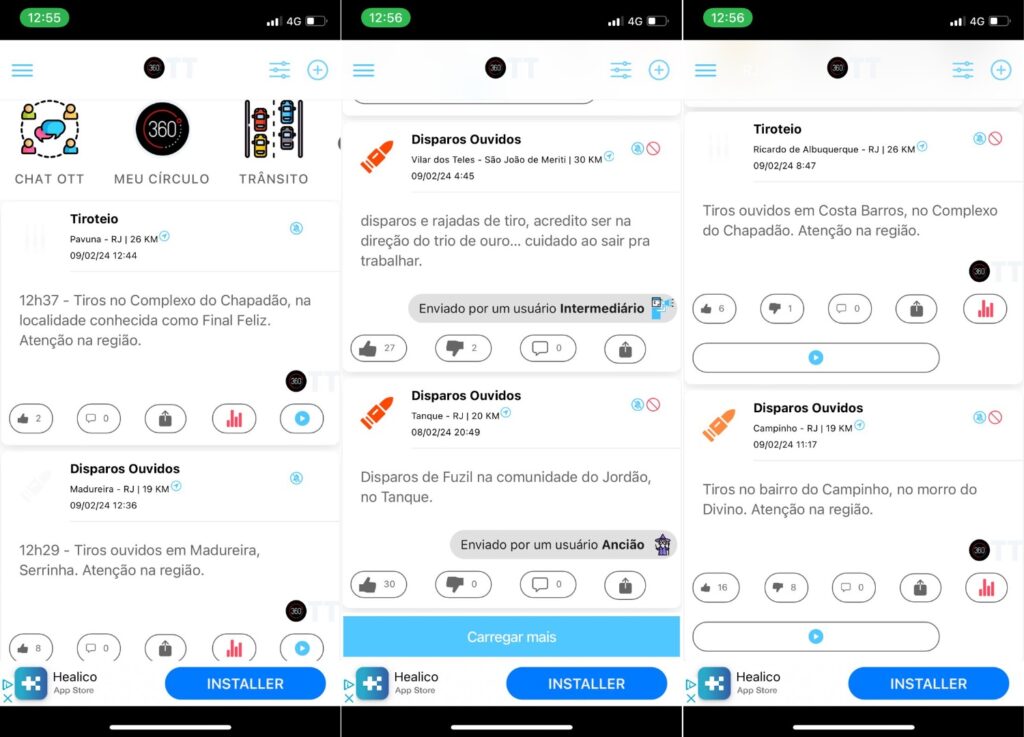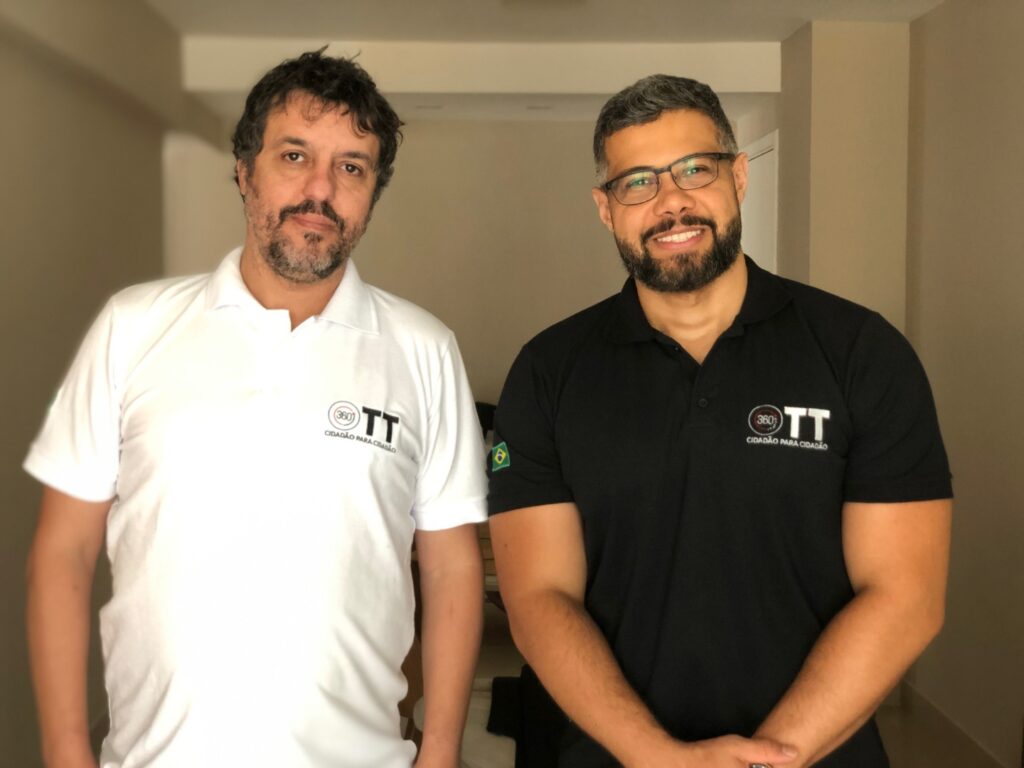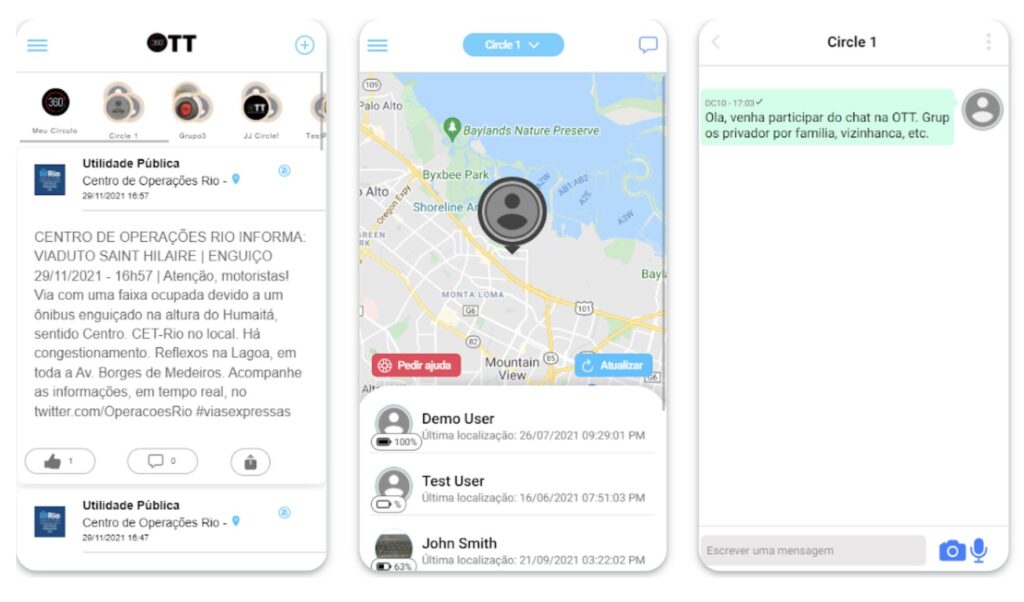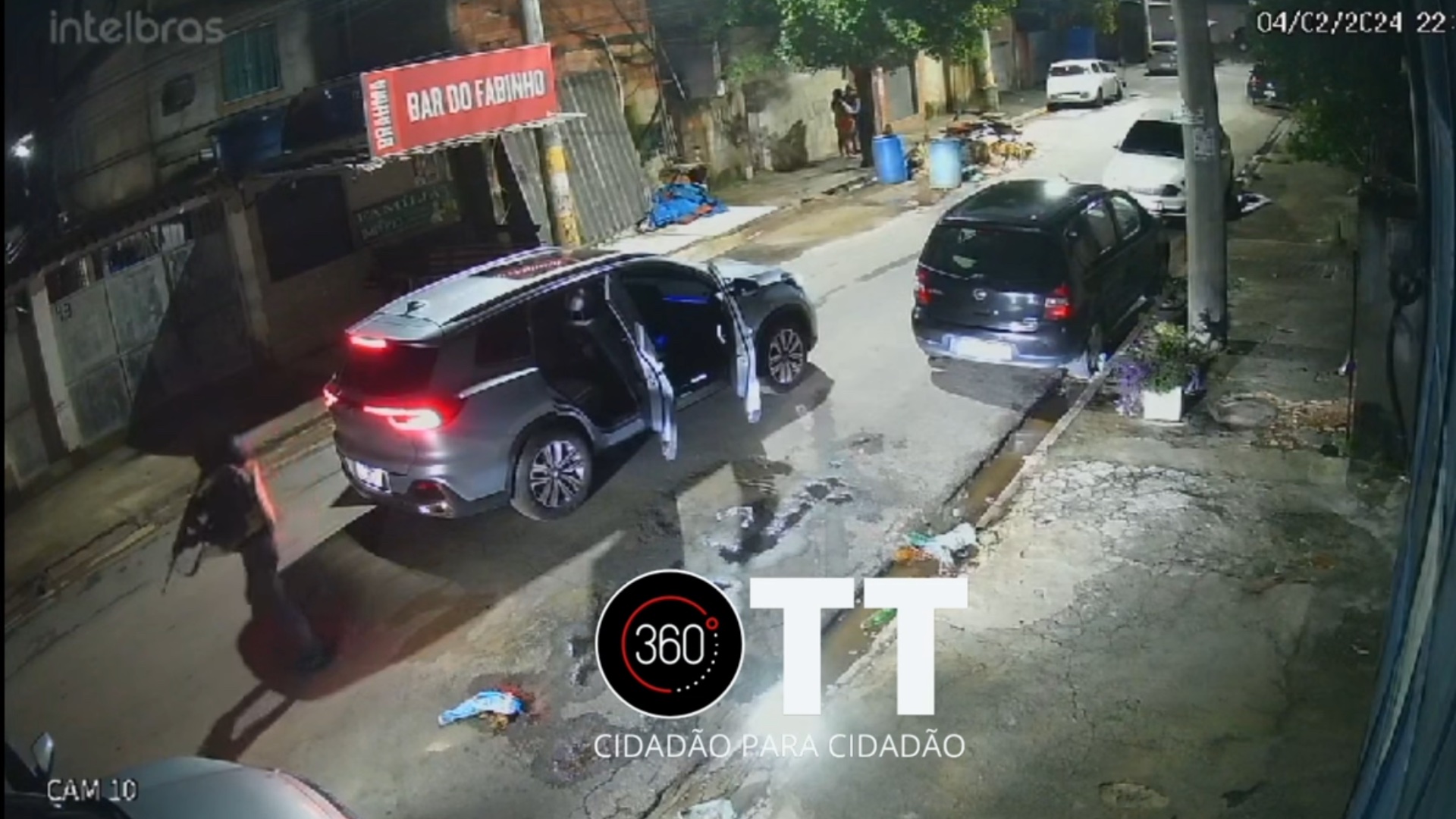The app Wave Tem Tiroteio (Where is it shooting?) allows residents of Rio de Janeiro to report areas of violence. This collaborative initiative, in a city renowned for its 10 murders on average per day, has become essential for many. It raises questions about efficiency and bias in a city scarred by crime.
“Exchange of fire in Jacarezinho”, “detonations heard in Vila Isabel”, “police operation in Quintino Bocaiúva”… On the screens of Brazilian phones, notifications scroll. “Opening this application has become routine for me” explains Ronaldo Santos, a young 26-year-old bartender who shares his life between Duque de Caxias and Guadalupe, two neighborhoods in the north of Rio frequently affected by violent episodes.. “Some watch Instagram, others Twitter, I watch OTT”
Advertisement
OTT is Wave Tem TiroteioIn French, we could translate his name as “where is it shooting?” ». In an interface similar to that of Waze, OTT allows users to report exchanges of fire, the detonations they hear, road blockages and all the dangers they see around them. A very useful application, while we identified 10 murders per day in the state of Rio de Janeiro in the first half of 2023.
In Rio, residents won over by the Waze of gunshots
Bruno lives in the upscale neighborhoods of Copacabana, in the southern area of the city, but still consults OTT. “Every day, I go to the Federal University of Rio de Janeiro (UFRJ), which is located in the North zone (disadvantaged zone, the most affected by violence, editor's note). I’ve already changed my path based on what I saw on the app, or on their Twitter page.”

“Avoid stray bullets”
The idea for the application comes from Benito Quintanilha's head. It was he who invented OTT in 2015, after yet another sordid news story. “ I was watching TV with my son, and we came across the story of a woman who was killed by a stray bullet, during an exchange of fire at Complexo do Alemão (a set of 13 favelas in the north of Rio de Janeiro). From there, I had the idea of creating a Facebook page, which would be used to warn people », relates this forty-year-old, comfortably installed in his living room in the Tijuca district. On the flat screen, the channel Globo broadcasts a story on the increase in attacks in São Paulo.
With his childhood friend Marcos, Benito set about creating a Facebook page, which accumulated likes in a few months.“Without any advertising!” We only operate by word of mouth » would like to emphasize Benito, very proud of his success. Today, the page has more than 750,000 subscribers. In 2018, it doubles as an application. The two friends call on Henrique and Dennis, two of their acquaintances. Dennis is a developer by profession.
Advertisement


“Initially, neither the Facebook page nor the application were collaborative. We sent all notifications ourselves, to avoid fake news. This word was very fashionable at the time! », quips Marcos, referring to the current political climate in Brazil.
Now the application interface resembles the news feed of a classic social network. Under each post alerting shootings, detonations or road diversions, users can like, comment, or even share. “We then equipped ourselves with an algorithm that sends a push notification based on a certain number of post engagements. There are always little pranksters, but in general, most users support the project. So they don't have fun talking nonsense! In general, the interval between reporting the incident and the push is around 5 minutes.”
Partnership with town hall, dispute with Waze
Against the backdrop of the launch of the application, a spectacular worsening of public security in Rio. The same year, the army is called in to maintain order in the city. The situation is critical, and the application is in the spotlight, to the point that the press sometimes prefers quote the numbers from the application rather than those of the authorities. Rightly so, according to Michel Misse, sociologist expert in public security in Rio de Janeiro: “The police have data based on the crimes reported to them. However, these applications have data generated directly by the citizens themselves. The latter report crimes, without always talking to the police”explains this professor at the Federal University of Rio de Janeiro (UFRJ), an observer of the subject for more than 40 years.
Building on its legitimacy, OTT secured a partnership with Rio City Hall, which now allows it to also report public works and road closures. Marcos, Benito and the others are even on the verge of closing a partnership with Waze, their model application: the company, owned by Google, offers them to power its interface. “We were up for it, but they wanted to do a free partnership. They told us: “you will gain visibility”. But we already have visibility! “, insists Marcos, visibly still a little disappointed. “We do this to help. We don't earn any money, we even put our hands in our pockets to run the app! » adds Benito. The only trace of advertising on the interface is a small advertising banner, generated by Google Ads.


An application that fuels prejudices?
On their site, the creators of OTT claim that 4.7 million people use the service. A success on paper, which does not really succeed in satisfying its creators. “ We often have the impression of emptying the ocean with a teaspoon. Around us, violence only increases, nothing changes,” laments Marcos, who denounces a “lack of political courage and corruption » in the treatment of violence in Rio.
The state of Rio Janeiro, whose high authorities and police are considered the most corrupt Brazil remains one of the regions with the highest homicide rate in the country. “With our data, we can precisely delineate the neighborhoods most affected by violence, month by month,” explains Benito, with supporting graphics. “The guys could at least use our data to try to create an action plan and make things better, right? »
Some dissonant voices criticize the application, which they accuse of accentuating prejudices on the neighborhoods. A criticism swept aside by the users we met. “OTT reflects prejudices more than it feeds them. He There is already a very strong stigmatization of the northern zone of Rio”, estimates Bruno, himself living in upscale neighborhoods in the southern zone. On the expert side, we do not say the opposite. “This is a criticism that seems superficial to me: we can just as easily make it to newspapers and television, to any communication channel », analyzes Michel Misse. “What harms these neighborhoods is violence, not information. »
